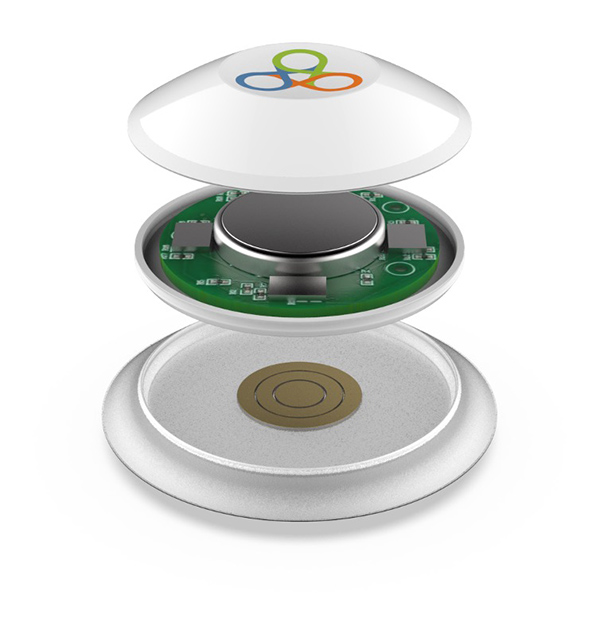
Opioid treatment tracking startup celebrates string of successes
By:
- Katherine Connor
Published Date
By:
- Katherine Connor
Share This:
Article Content
When the creme de la creme of the San Diego startup and innovation space take over Petco Park for San Diego Innovation Day on April 28, CARI Health, a startup supported by the UC San Diego innovation ecosystem, will be among the “Cool Companies” showcased to venture capitalists. Inclusion in local startup hub Connect’s Cool Companies list isn’t the only recent bright spot for CARI Health; the startup, which is developing a wearable opioid medication monitor, also won the $300,000 grand prize at the San Diego Angel Conference in March, and is now looking to close out a seed round of funding.
“Nearly 200 people a day die from opioid drug overdoses; it's a huge problem, and the only way out of this is to get more people into treatment, and then to keep them there,” said Patrik Schmidle, CEO and founder of CARI Health, which offers a solution to this problem.
The startup is developing a wireless, wearable medication monitor that allows clinicians and patients to track information about medication levels in the patient’s body. Initially, the company plans to use the wearable to help opioid addiction patients in recovery track their treatment medication compliance.
The device works much the same way a continuous glucose monitor does for diabetics; the patient sticks the device– which has tiny, painless needless on the bottom– on their arm. The needles connect with interstitial fluid, detecting levels of specified medications to ensure the patient is complying with their treatment regimen. This information can be shared with the patient’s doctors or even family members, to help ensure the patient is taking their medication as prescribed. The patient replaces the wearable every seven to 10 days.
This stands in stark contrast to existing options for opioid addiction treatment, where patients often need to physically show up to a clinic to be given their prescribed medication and ensure it’s taken.
“What our device is intended to do is to remove some of the challenges that opioid addiction patients in recovery face, associated with getting their medication,” Schmidle said. “In some cases that means right now they have to physically go to the clinic to get their medication. By wearing this monitor they wouldn’t have to do that anymore, and that's life changing.”
While the initial goal is to track treatment compliance to ensure better outcomes for addiction patients, Schmidle says data from the tool could have much broader implications. The CARI Health device is unique in that it’s able to detect and track multiple medications at the same time.
“Today clinicians really don't know how each patient metabolizes medications, so it's sort of a one size fits all in terms of dosing and titration,” he said “This will give us unique insights to enable clinicians to customize the dosing and the titration for each patient, depending on their metabolism and the drug’s therapeutic range.”

A deconstructed view of CARI Health's wearable medication monitor.
CARI Health has a working prototype and plans to start clinical trials later this year.
UC San Diego Innovation Ecosystem
CARI Health got its start in the UC San Diego Qualcomm Institute Innovation Space, where it was housed from 2015 to 2020. Initially, Schmidle was working on an implantable device to detect opioids, with the hope of helping patients in recovery by alerting their medical team or select family members if they had a relapse. The company pivoted in early 2021 from an implantable to a wearable that can detect the medications that are used to treat opioid addiction.
Research from the lab of Drew Hall, a professor of electrical and computer engineering at the Jacobs School of Engineering at UC San Diego, was crucial to the CARI Health device’s feasibility. Hall’s Biosensors and Bioelectronics Laboratory pioneered techniques to enable ultra-low-power devices such as this wearable, which is expected to last for up to 10 days without charging required. His work on miniaturizing the electronics required to power such a device was also critical. Hall now serves as a technical advisor to CARI Health.
Dr. Carla Marienfeld, a clinical professor and an addiction psychiatrist at UC San Diego Health who is the medical director for the Substance Treatment and Recovery (STAR) Program for people with substance use disorders, has been another critical supporter, serving as a research collaborator and clinical advisor to CARI Health since 2016. Marienfeld advises the company on patient care, clinical utility, and what’s required of such a device from the patient and clinician perspectives.
Though it now has its own office and lab space in UTC, Schmidle says the UC San Diego innovation ecosystem is still crucial to the startup’s success. CARI Health has been part of the UC San Diego Institute for the Global Entrepreneur’s (IGE) MedTech Accelerator for close to two years, drawing guidance and support from one-on-one mentoring with successful entrepreneurs and business leaders, as well as from larger group check-ins and workshops.
“The support has just been game-changing,” he said. “Not just the weekly coaching and mentoring, but also the larger group interactions we had with the full group of IGE mentors that would provide feedback. It’s really important to get that feedback from people that have launched businesses and commercialized solutions and have been in the space; it really helps you understand where the biggest risks are, what are the things you have to work on most, what do you prioritize, how do you need to change your messaging. It’s helped us iterate and improve.”
Share This:
You May Also Like
Stay in the Know
Keep up with all the latest from UC San Diego. Subscribe to the newsletter today.



